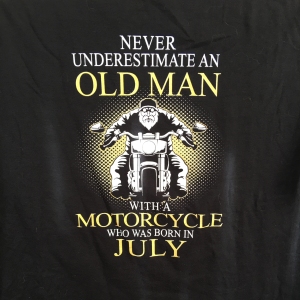When I first read today’s subject, I immediately thought of the late great Paddy Pallin, the doyen of Australian bush walking. Paddy wrote a book called,’Never Really Lost’ and those words are still my mantra.
Back in the dreamtime when my ability to navigate by reading topographic maps was second to none, getting lost was never a possibility. Misplaced, perhaps, but lost, never, ever. In those days, a good quality magnetic compass, military of course, coupled with an ability to triangulate using landmarks and six figure grid references from the right maps meant one always got to the destination, on time and then got back home again, whether by foot or by vehicle.
Without blowing my own trumpet, I was a bloody good navigator, even at night where I could navigate by the stars. Military trained? Too right. Was I a legend in my own lunch time? In my four wheel drive club, certainly, in my bush walking club, of course. Could I use a sextant too? Of course. Useless knowledge though as no one had one. After all, at that time I operated on land, not at sea.
Then over the years as advancing technology began to creep in I started to use basic hand held GPS . My choice was the Magellan GPS315, quite as versatile little unit as it could be vehicle mounted as well as hand held. It came out in 1999 and I was the first in our mob to get one.
As long as we carried the right topo maps and the Australian 1:250,000 Map Series Gazetteer, using the selected latitude and longitude always got us eventually to our destination. Of course you could only take the Gazetteer with you if you were in a vehicle as the blasted thing weighs nearly eight pounds. I’ve got mine right here next to me as I type and my old Magellan 315 too, just in case.
As the years rolled by, HF ( High Frequency) radio became a must have for those of us who ventured off the beaten track in our four wheel drives. Toyota Landcruisers were by far the most popular but I remained loyal to the Landcover marque and fitted my Defender 110 with a Barrett 950 SSB Transceiver (SSB stands for Single Side Band). The beauty of the 950 is it can be used to make telephone calls through the usual telephone network, gives instant contact with the Royal Flying Doctor Service and the Police in many outback towns.
Many, many HF radio owners belong to a volunteer radio network that has the call sign VKS-737. The network has a number of base stations spread across Australia and is contactable 24/7 on a number of radio frequencies that we use according to the time of day and the base station we wish to contact. VKS-737 issues all members with a special sell call number we use to contact a base station or another vehicle.
If we decide to only use the VKS-737 network, members require no other licence. However, should you wish to step outside that network, then it is necessary to hold a licence issued by the Australian Government’s Communication and Media Authority. I hold what is known as an Outpost Licence with the call sign VZL590. When using my radio, I announce myself as Victor Zulu Lima five niner zero. Makes me feel important, even just typing it down.
Now the beauty of VKS737 for those of us who travel well off the beaten track is that we can call in at regular intervals, advise our location, receive messages from other users, get road and weather reports and provide assistance and support to others who may be in trouble for whatever reason. What’s wrong you may ask, with using the mobile phone as we call it here down under instead of the radio? Well, our mobile service is almost non existent in our distant unpopulated outback, so, unless you have a satellite phone, also dodgy, you can go absolutely off the radar without HF. In the real outback country, you can go for a couple of weeks and not see another vehicle or person.
So, its vital to go well equipped. Two spare wheels, a high lift jack, extra fuel, (my Landrover holds 140 litres (about 38 gallons) of diesel plus another 40 litres in jerry cans) tools, spare parts, fuses, axe and shovel, food for 14 days, LPG gas bottles for the stove, fresh water, a full first aid kit, camping gear, cameras and lenses and of course, the mandatory laptop, Apple of course, make up the basic off road survival kit. Fortunately here in Australia, the carrying of a firearm is unnecessary and can be more of a hinderance than a help.
Well, my counter says 882 words and I’m not even lost yet. What does this mean? Here’s a clue to why you should stick around for the second episode:

Hoo roo for now.

